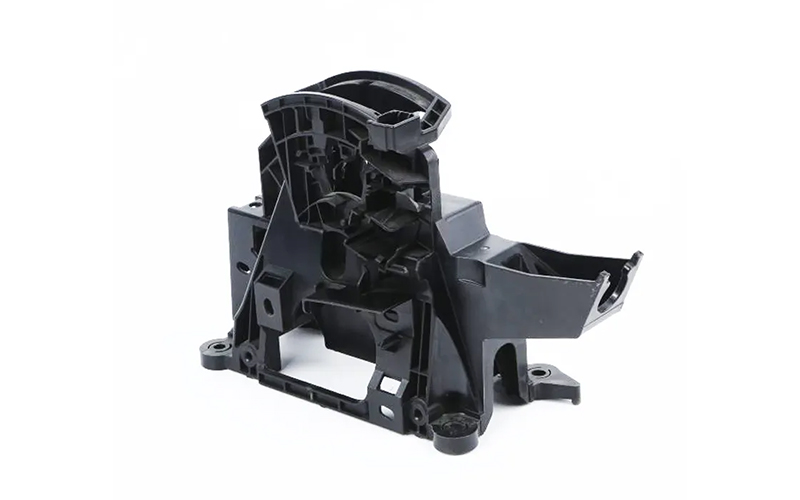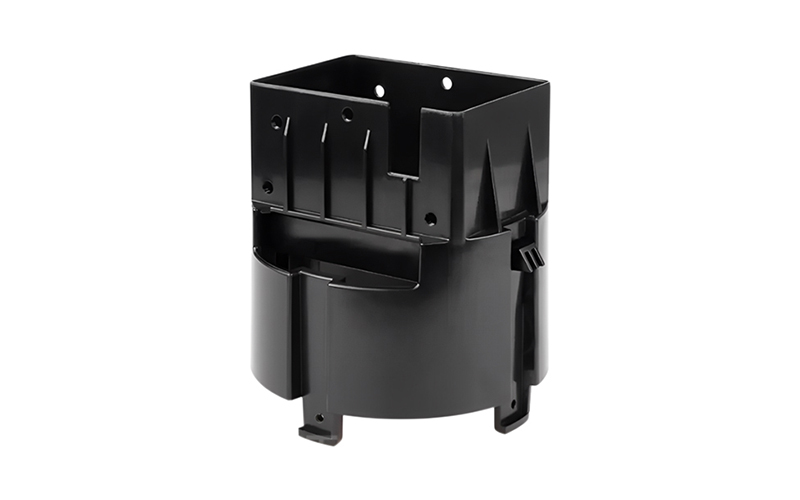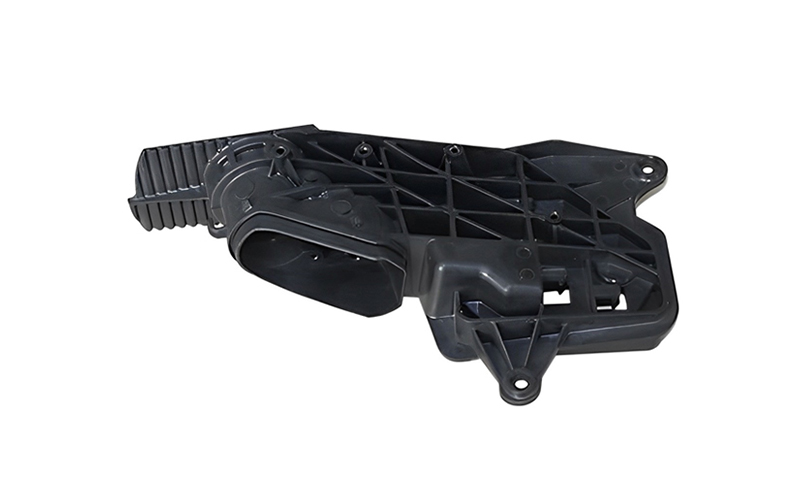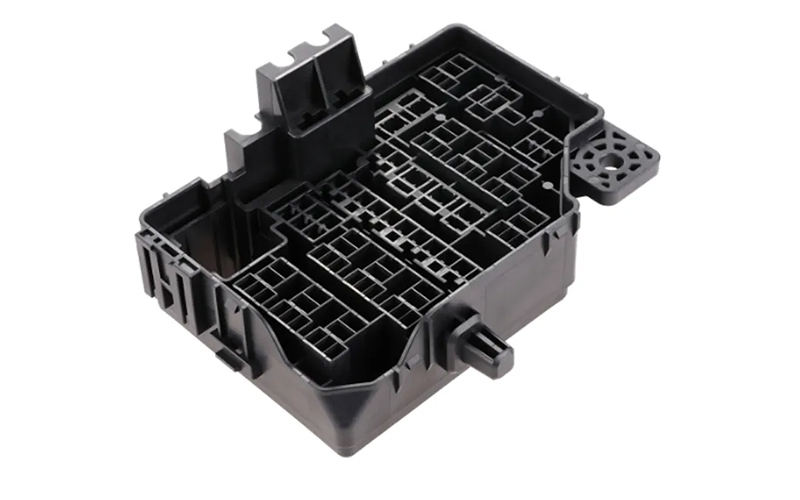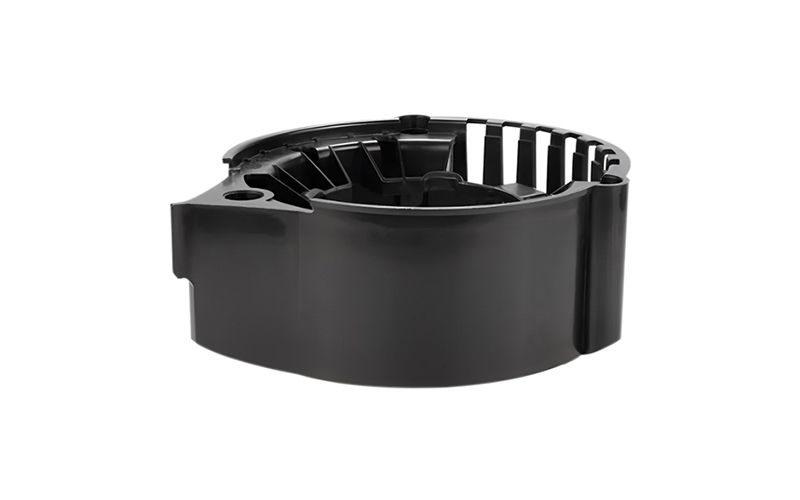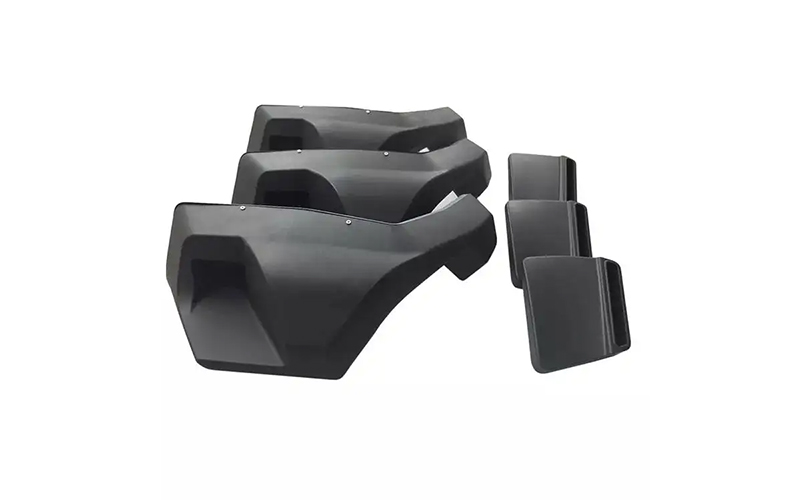Vacuum Casting Services
Our Vacuum Casting Services
Provide reliable custom vacuum casting services from prototyping to low-volume part manufacturing at competitive prices. High precision and stable performance vacuum forged parts have excellent quality and faster turnaround time.
●Advanced Equipment & Cost-Effective Price
●ISO 9001 & ISO13485 Certified Factory
●10+ Years of Vacuum Casting Service
●Lead Time As Fast As 3 Days
●24/7 Engineering Support
●Instant Vacuum Casting Services Quotes
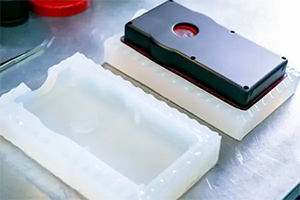
Our Robust Vacuum Casting Services Capabilities
50+
Vacuum Casting Machines
0pc
MOQ
±0.001mm
Tolerances
12+
Surface Finishes
Advantages of Vacuum Casting
As a leading vacuum casting manufacturer in China, NOBLE provides low-cost manufacturing of high-quality plastic parts. Our vacuum casting services provide short-cycle solutions for creating high-quality prototypes and low-volume part production.
Vacuum casting, or urethane casting, is a technique that combines a silicone mold with a 3D printing master to create vacuum-cast parts with consistent performance and production-grade quality. The technology requires no costly up-front investment, allows for flexible, economical production, and process hardens thermoplastic polyurethane in silicone or epoxy molds. The result is a vacuum-cast part with the same shape as the original master model. The final dimensions of a vacuum cast part will depend on the master model, part geometry, and material chosen.
Our Vacuum Casting from Prototyping to Production
Vacuum casting is a versatile process that seamlessly transitions from prototyping to low-volume production, offering numerous benefits throughout each stage.

Prototyping
Vacuum casting is a low-cost manufacturing process that is more accessible and cost-effective than other methods for creating prototypes. Using a variety of materials and design variations, you can create high-quality prototypes. Then, simply test your designs and prepare them for functional testing

Market Testing
Vacuum-cast parts can be used for market testing and initial market penetration. This allows you to gauge customer response, conduct field tests, and validate market demand before investing in large-scale manufacturing.
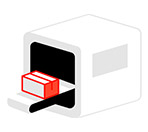
On-Demand Production
Vacuum casting accommodates customization and small-batch production needs. As the molds can be easily modified, it allows for the on-demand production of tailored parts to meet specific customer requirements or niche market demands.

Fast Delivery
We can not only provide faster engineering technical support but are also equipped with a strong supply chain system and advanced Vacuum Casting equipment so that you can obtain unparalleled Vacuum Casting parts with stable performance and shorten your product development cycle.
Our Vacuum Casting Tolerances
NOBLE offers a range of vacuum casting tolerances to meet your complex custom requirements. Depending on the master model and part geometry, we can achieve dimensional tolerances between 0.2 – 0.4 m. Below are the technical specifications for our custom vacuum casting services.
Type | Information |
Accuracy | Highest precision to reach ±0.05 mm |
Max Part Size | +/- 0.025 mm +/- 0.001 inch |
Minimum wall thickness | 1.5mm~2.5mm |
Quantities | 20-25 copies per mold |
Color & Finishing | Color and texture can be customized |
Typical Lead Time | Up to 20 parts in 15 days or less |
Materials for Vacuum Casting
You can choose a wide range of vacuum casting materials depending on the peculiarities of your project.
Here are some choices for you:
| Image | Materials | Description |
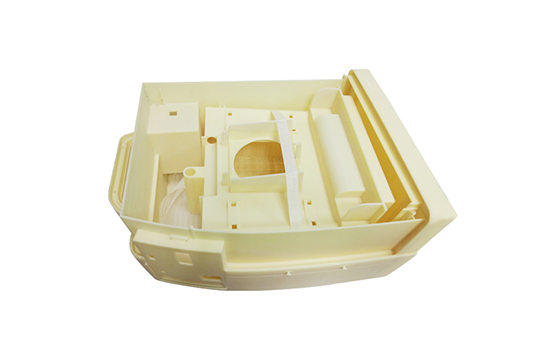 | ABS | ABS is a thermoplastic polymer, is widely used due to its exceptional resistance to impact, temperature, and chemicals. It also offers a sleek surface finish and is easy to produce and handle. |
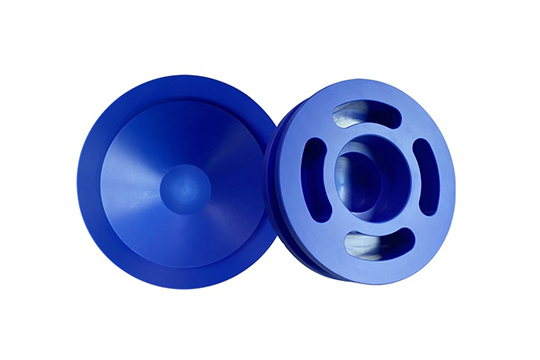 | POM | POM, also known as acetal or Delrin, is a type of engineering thermoplastic that boasts exceptional dimensional stability, stiffness, temperature resistance, and impact resistance. |
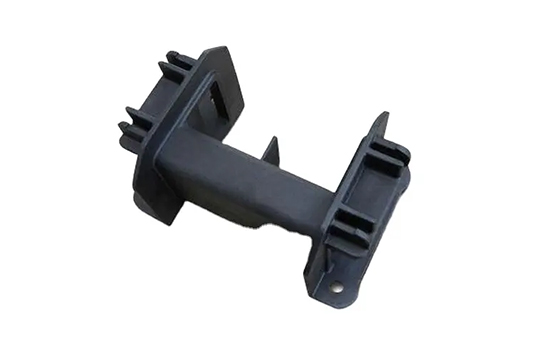 | PP(Polypropylene) | Polypropylene (PP) is a material that is typically white and translucent and is resistant to corrosion while also possessing good toughness. Its most notable characteristic is its versatility, as it is suitable for use in a variety of processing methods and applications. |
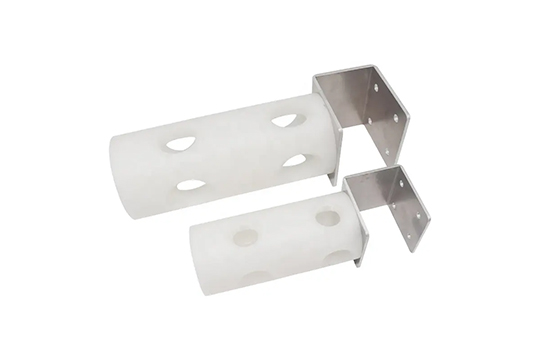 | PE(Polyethylene) | Polyethylene is odorless, non-toxic, feels like wax, has excellent low-temperature resistance (minimum operating temperature can reach -100~-70°C), has good chemical stability, and can withstand most acid and alkali erosion (not resistant to oxidation) nature acid) |
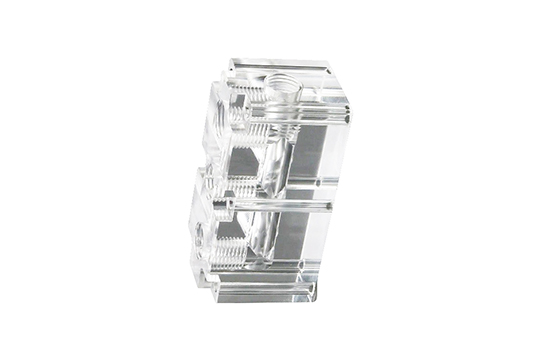 | PC(Polycarbonate) | Polycarbonate (PC) is an amorphous thermoplastic known for its exceptional transparency and impact resistance. It also possesses strong electrical insulating properties and moderate chemical resistance. |
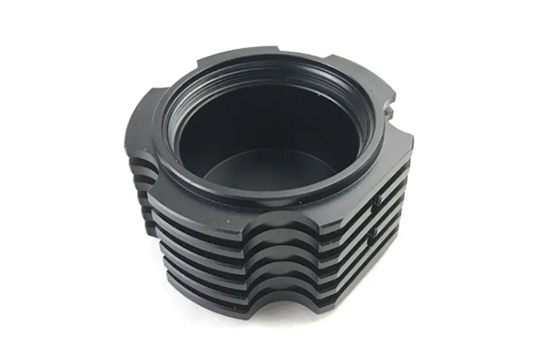 | PMMA(Polymethylmethacrylate) | Polymethylmethacrylate, also named Acrylic. Acrylic is a highly versatile material known for its exceptional transparency, chemical stability, and resistance to heat, cold, and corrosion. |
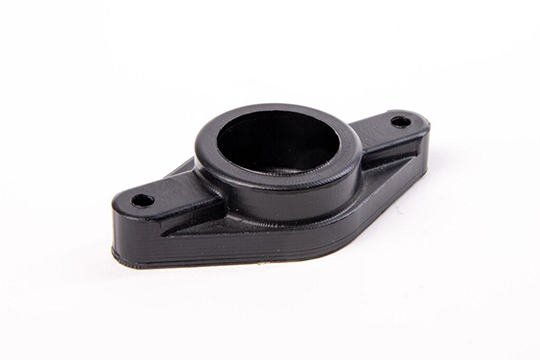 | PEEK | PEEK boasts exceptional mechanical strength, self-lubrication, impact resistance, and flame retardancy. It is also highly resistant to acid, alkali, and other chemical corrosion, hydrolysis, wear, fatigue, stripping, and radiation. |
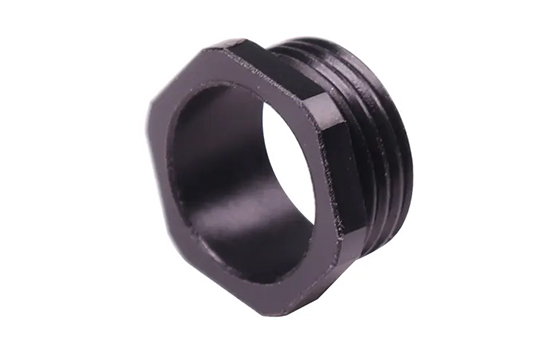 | Nylon | Nylon is impressive mechanical properties such as heat and wear resistance, chemical resistance, and self-lubrication, polyamide fiber also possesses flame retardancy, a low coefficient of friction, and is easy to manufacture. |
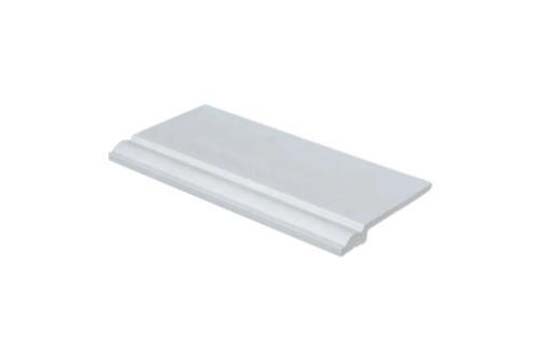 | PS (Polystyrene) | Polystyrene (PS) is a polymer made from the monomer styrene, a liquid hydrocarbon that is commercially manufactured from petroleum. At room temperature, PS is normally a solid thermoplastic but can be melted at higher temperatures for molding or extrusion, and then resolidified.High-impact strength, low-cost resin with a wide range of options. |
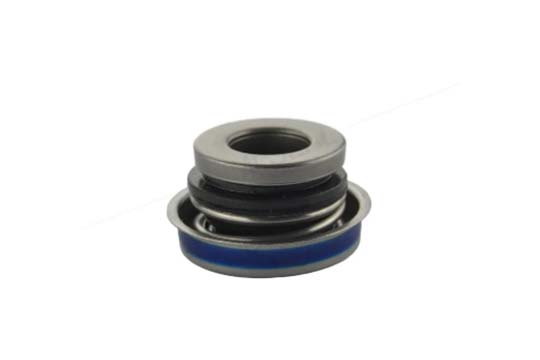 | Elastomer | Elastomers are polymers with viscosity and elasticity and therefore are known as viscoelasticity. The molecules of elastomers held together by weak intermolecular forces generally exhibit low Young’s modulus and high yield strength or high failure strain. Examples are Natural rubber, Silicone Polyurethanes, and Polybutadiene, Polyurethane plastic resin. |
Surface Finishes for Vacuum Casting
NOBLE can build unique surface layers for your vacuum casting parts using a wide range of surface finishes. These finishes assist you in meeting the aesthetic, toughness, and chemical resistance needs of your products. We can provide the following surface finishes based on your material selection and part application:
| Name | Description | |
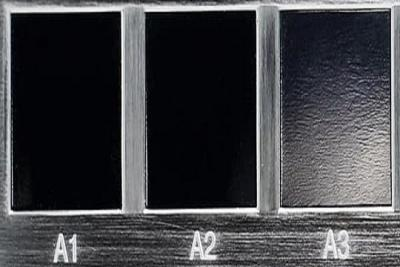 | Glossy | A grade finishes are made using a diamond buffing process and yield shiny and glossy surfaces on injection molded parts. |
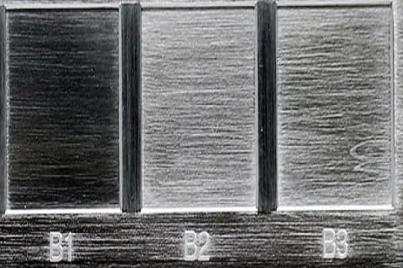 | Semi-glossy | B grade finishes use grit sandpaper to produce parts with a slightly rougher finish than grade A parts. Custom molded plastic parts that undergo B grade finishing have a matte surface texture. |
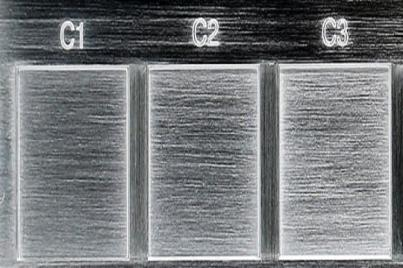 | Matte | C grade finishes use grit sanding stones to produce a rough, uneven surface. Injection plastic parts that undergo C grade finishing have a matte surface texture. |
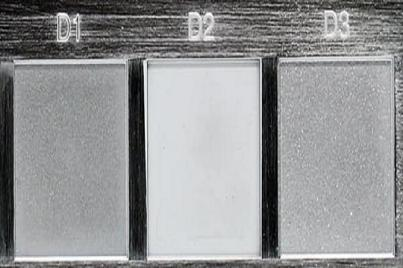 | Textured | D grade finishes use grit and dry glass beads or oxide to produce a very rough textured finish. Depending on the type of material used, products can have a satin or dull finish. |
Why Choose Us for Vacuum Casting Services
By integrating cutting-edge technology with the knowledge of our qualified personnel, NOBLE prioritizes client happiness. Our vacuum casting process is precise, efficient, and cost-effective, yielding exceptional results. Choosing our vacuum casting will help your business reach new heights of success.

Competitive Pricing
We realize how important it is to stay within your project's budget. Our price system is competitive and geared to fit the demands of businesses of all sizes, regardless of resource constraints. Our team is available to review your budget and offer value-added solutions that will benefit your company.

Professional Vacuum Casting Expert
Get reliable custom vacuum casting services from skilled and experienced engineers. With more than ten years of experience in vacuum casting, we can assist customers in optimizing designs, selecting appropriate processes, reducing costs, and achieving rapid mass production.

Complex Geometry Support
We use high-quality elastomer materials to ensure the manufacture of vacuum-cast plastic parts with complex structures at competitive prices. Experienced engineers provide 7 to 24 hour project support to ensure your prototypes and low-volume components closely resemble the intended end product.

On-Time Production
We have a large production capacity and a team of skilled engineers and salespeople who prioritize open communication and just-in-time production for your order. This ensures that we can provide the fastest possible delivery time to meet any urgent needs you may have.

Unrivaled Lead Times
We combine rich Vacuum Casting project experience and advanced equipment to provide high-quality Vacuum Casting services with faster delivery times.

Flexible Color Options
We carefully mix a variety of pigments to achieve the desired effect on your finished product. You can choose from our extensive list of color options.
Work with Us in 4 Simple Steps Only
With many years of manufacturing experience, NOBLE offers the best solutions for all rapid prototyping and low-volume manufacturing needs. We streamline the innovation cycle into four simple but effective steps.

Upload Your Design
Just simply upload your CAD filesand submit RFQs with clear infor-mation online.

Receive Design Analysis
We'll send you design for manufa-cturability analysis and transparent pricing.

Start Manufacturing
Our experts will produce your parts with the required technologies and materials.

Receive Your Parts
Your parts will be delivered to your door directly with stringent deadlines.
Gallery of Vacuum Casting Parts
Please browse through our extensive gallery showcasing Precision Vacuum Casting Parts created by us for our esteemed clients.
Our Vacuum Casting Services Process
Vacuum casting is a cost-effective way to create high-quality prototypes and low-volume production parts with great detail and material options. Here are the steps involved:

Step 1. Master Pattern Creation
The process begins with the creation of a master pattern, which serves as the original model for replication. The master pattern can be produced using various methods, such as 3D printing, CNC machining, or traditional fabrication techniques.

Step 2. Mold Preparation
A silicone mold is created around the master pattern. The mold is typically made in two halves, allowing for easy removal of the pattern and subsequent casting. The mold is then secured within a casting frame.

Step 3. Mold Release and Preparation
Prior to casting, a mold release agent is applied to ensure the easy removal of the final casted part from the mold. The mold is then preheated to a specific temperature to enhance material flow and reduce curing time.

Step 4. Material Mixing and Vacuum Degassing
The chosen casting material, usually a two-part polyurethane (PU) resin, is mixed thoroughly to achieve a homogeneous consistency. The mixed material is then placed in a vacuum chamber to remove any air bubbles or voids that could affect the final part's quality.

Step 5. Casting Process
The prepared mold is placed in a vacuum casting machine. The machine creates a vacuum within the chamber, which helps to draw the liquid resin into the mold, ensuring precise replication and minimal defects. The resin is poured into the mold under vacuum conditions, filling the cavities and replicating the desired geometry.

Step 6. Curing and Solidification
After the mold is filled, the casting is left undisturbed to cure and solidify. The curing time varies based on the resin type, thickness of the part, and ambient conditions. If necessary, heat or post-curing may be applied to accelerate the curing process

Step 7. Mold Opening and Part Extraction
Once the resin has solidified, the mold is opened, and the cast part is carefully removed. The mold can then be reused multiple times to produce additional parts.

Step 8. Finishing and surface treatment
To achieve the desired aesthetics and functionality, the casted part may require finishing and surface treatment, such as trimming excess material, sanding, painting, or surface treatments.
See What Our Customers Say About Us
The feedback of customers has a greater impact than a company's advertising. Take a look at what our satisfied customers have to say about how we met their needs.
Vacuum Casting Applications
Metal stamping is a crucial aspect of parts manufacturing in various industries such as automotive, aerospace, electronics, appliances, telecommunications, and medical equipment. NOBLE is dedicated to offering innovative manufacturing solutions to meet the diverse needs of our clients. Our top priority is to provide high-quality parts at competitive prices to customers across multiple sectors.
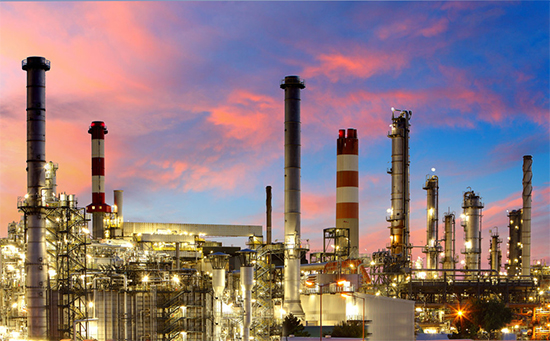
Oil & Gas
The professionals at NOBLE have a vast understanding of vacuum casting echnique for the oil and gas industry and use top-of-the-line stamping machines to guarantee high precision.
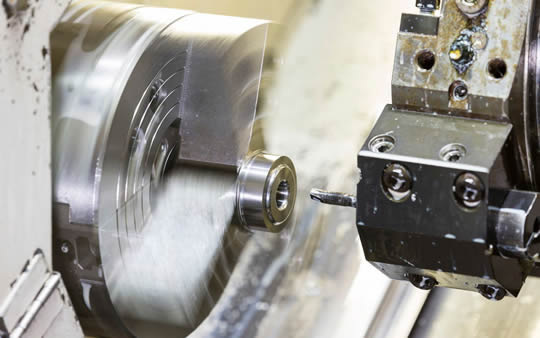
Tool & Die
NOBLE's professional engineering team has vacuum casting expertise in the tool and die industry, providing you with professional technical support in tool and mold making, precision machining, material properties, and manufacturing technique selection.
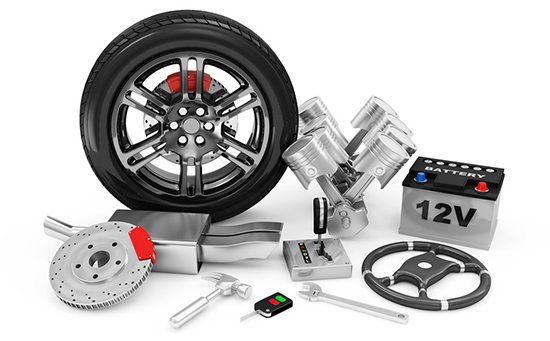
Automotive
Our vacuum casting services enable the production of a wide range of components that contribute to the performance, safety, and aesthetics of vehicles in the automotive industry.
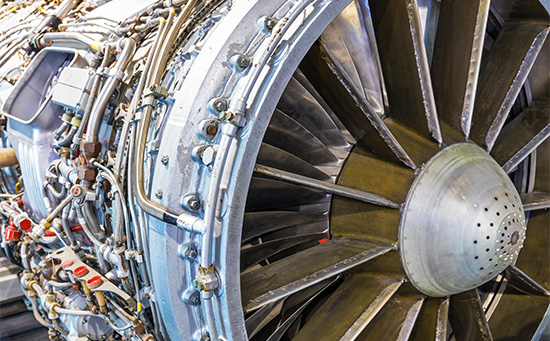
Aerospace
Our vacuum casting services provides high-quality, precise, and durable components that meet the demanding requirements of aircraft safety, performance, and reliability.
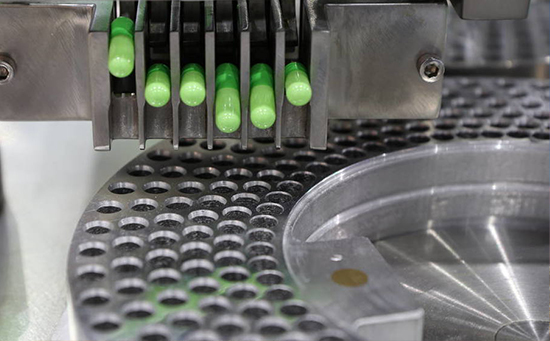
Medical Devices
Our vacuum casting services have been meticulously designed to meet the stringent requirements of the medical industry, ensuring that every component we produce meets or exceeds the highest standards.
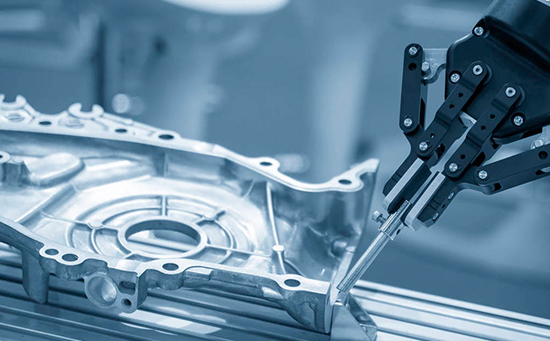
Robotics
Our cutting-edge capabilities, innovative craftsmanship, and skilled engineering team could better serve the robotics field with advanced vacuum casting solutions.
Vacuum Casting FAQs
- Q
What is vacuum casting?
AVacuum casting is a manufacturing process that involves creating replicas of a master pattern by pouring liquid resin into a silicone mold under vacuum conditions. It is commonly used for prototyping and low-volume production of complex parts.
- Q
What materials can be used in vacuum casting?
AVacuum casting is compatible with a wide range of materials, including polyurethane (PU) resins. These resins come in various formulations, offering different mechanical properties, colors, and finishes to suit specific application requirements.
- Q
How does a vacuum casting work?
AVacuum casting is a manufacturing process used to create prototypes or small production runs of plastic parts. It involves creating a mold around a master pattern, pouring liquid resin into the mold, and using a vacuum to remove air and ensure complete resin filling. The resin is then cured, and the mold is separated to remove the solidified parts. Vacuum casting allows for high-quality replicas with detailed features and is cost-effective for low-volume production.
- Q
Why use vacuum casting?
Avacuum casting provides a flexible, cost-effective, and efficient solution for creating prototypes, producing low volumes of parts, and achieving high-quality replicas with intricate details and fine finishes.
- Q
How long does vacuum casting lead take?
AThe lead time for vacuum casting can vary depending on several factors, including the complexity of the part, the number of parts required, the specific requirements of the project, and the capacity of the manufacturing facility. Generally, the lead time for vacuum casting can range from a few days to a few weeks.
- Q
Is vacuum casting cheaper than injection molding?
AIt's important to note that the cost-effectiveness of vacuum casting versus injection molding can vary depending on the specific project requirements. For high-volume production runs, injection molding becomes more cost-effective due to the amortization of tooling costs over a larger number of parts. It's recommended to assess the specific needs of your project and consult with manufacturers or service providers to determine the most cost-effective manufacturing method.
- Q
What are the advantages of vacuum casting for prototyping?
AVacuum casting offers several advantages for prototyping, including quick turnaround times, cost-effectiveness, and the ability to produce functional prototypes that closely resemble the final product in terms of aesthetics and physical properties.
- Q
What is the minimum thickness for vacuum casting?
AThe minimum thickness for vacuum casting can vary depending on several factors, including the material being used, the complexity of the part geometry, and the specific capabilities of the vacuum casting process being employed. However, as a general guideline, a minimum thickness of around 0.5-1 mm is often considered feasible for vacuum casting.

 EN
EN  AR
AR NL
NL FI
FI FR
FR DE
DE HI
HI IT
IT JA
JA KO
KO NO
NO PL
PL PT
PT RU
RU ES
ES ID
ID HU
HU TH
TH MS
MS
